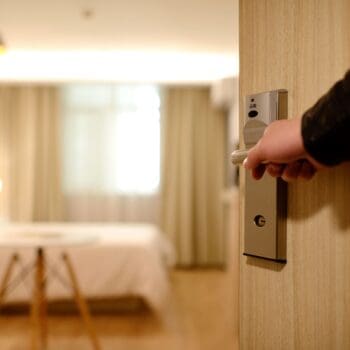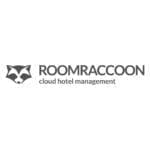
In order for a hotel to survive and succeed in 2023 and beyond, guest data must be a part of the equation. By gathering the data of the guests, management can provide a personalized hotel experience that keeps people coming back year after year. However, when the personnel at a hotel collect that user data, it is their responsibility to also protect it and keep it out of the hands of cybercriminals. Doing so is essential for maintaining customer trust.
If you work at a hotel, then you need to know about data privacy and the threats that exist around every corner. Then, you need to safeguard your data and try to eliminate those threats. Let’s talk about the steps you can take today to do just that.
Why data security is so important
Many business owners believe that hackers are only concerned about stealing credit card numbers from banks and online stores, but the reality is that cybercriminals will go wherever the data is, and if your hotel is like many others, then you have exactly what they need. Any piece of information, from a guest’s email address to their banking institution, can be sold on the black market or be used to take out fraudulent loans.
If you don’t think that your hotel could fall victim, then you only need to look to the past. Many luxury hotels have experienced cyber breaches at the hands of hackers, including MGM resorts, Marriott, and The Ritz in London. In some cases, the data of millions of customers has been compromised, and it has not been a good look for those establishments.
There are many negative outcomes that can occur if your hotel is hacked. Among them are the financial implications associated with repairing the vulnerabilities in your systems and possibly fending off lawsuits from your former guests. On top of that, once your customers catch wind that your hotel was hacked and that you did not take the steps necessary to avoid the breach, then they will likely have no problem taking their business elsewhere.
The point is that cybersecurity and data privacy needs to be your number one priorities for the good of your reputation and your bottom line.
Encrypt and protect information
The first step that you need to take is to encrypt and back up all of the data that is currently in your systems and take the proper steps to secure all documents and future information. To start, you need to create a backup server to house all data so it can be recovered if there is ever a cyber scare. This backup needs to be separate from your main server so it cannot be easily compromised. Your employees need to be trained to back up their data at required intervals so you can ensure that everything is in a safe place.
When your guests check into your establishment, they often need to provide numerous documents and personal data, and you need to take the proper precautions to securely gather that information. At a minimum, your systems need to be designed in a way that they automatically encrypt the data that you gather, so it cannot be used even if it is stolen. You should also implement access control lists, which prevent unwanted visitors from gaining access to particular servers or pieces of data.
If your management team is not well-versed in cybersecurity or is not equipped to handle the potential threats, then you may consider uploading all of your incoming data to the cloud. A cloud system will allow you to gain access to that information from anywhere, so even remote employees can work with ease. Plus, many cloud companies also have their own security teams that will help to protect the data for you.
Just keep in mind that although cloud computing is a relatively safe option, these systems can also fail. They come with their own cloud-computing security risks, including the possibility of technical issues, hijacked customer accounts, and the threat of unauthorized personnel gaining access to your files.
Train your staff
Now that your data is secure, you need to train your staff on the potential cybersecurity threats and tactics that hackers can try to cause a data breach. The first step is to put a robust risk management strategy for your hotel in place to prepare for the unexpected. Part of that strategy needs to involve identifying key risks that could occur, which could range from adverse weather to political unrest. A potential data breach should be among those top concerns.
Educate your teams on the common cyber threats to hotels that hackers use time and time again, including ransomware, POS attacks, and fake Wi-Fi networks. They need to be trained on the signs of a potential scam, so they can report it to management before it becomes a larger issue.
Phishing emails are a major threat in any industry that can come at any time. They typically involve a message sent to an employee that includes a link or attachment that, when clicked, unleashes a virus into the system. Advise your teams to never open any email that they were not expecting, especially if it comes from a suspicious source.
Once your team has been educated on the threats and warning signs, have them sign off on a document that acknowledges their understanding. That way, they can see the seriousness of this instruction, and they can be held accountable if they fail to report suspicious activity.
As you can see, proper data security is as important in the hospitality industry as it is anywhere else. Consider these tips, and put the privacy of your guests first.




















